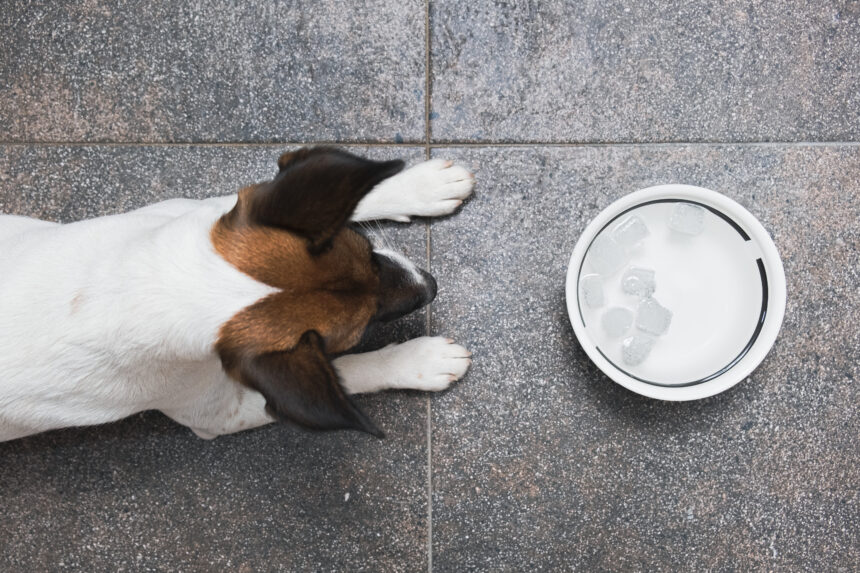As loving pet owners, we’re constantly looking out for the well-being of our furry friends. We’ve all heard the advice about not giving dogs ice water, but is there any truth to it? In this article, we’ll explore the myths and facts surrounding this popular topic and provide a balanced perspective on the matter.
Myth or Fact?
The Myth: Ice Water Causes Bloat
One of the most common reasons cited for not giving dogs ice water is the belief that it can lead to a potentially life-threatening condition called bloat or gastric dilatation-volvulus (GDV). Bloat is a serious condition where a dog’s stomach fills with gas and twists on itself.
The Fact: Ice Water and Bloat
There is no scientific evidence to support the claim that giving a dog ice water can cause bloat. Bloat is a complex condition with multiple risk factors, including breed predisposition, eating habits, and genetics. While it’s important to be cautious about the temperature of the water you give your dog, ice water itself is not a direct cause of bloat.
The Myth: Ice Water Causes Spasms or Cramps
Another common misconception is that ice water can lead to muscle spasms or cramps in dogs, similar to what humans might experience when consuming something very cold.
The Fact: No Evidence of Ice Water Inducing Cramps
There is no credible scientific evidence to suggest that ice water causes muscle spasms or cramps in dogs. Dogs’ bodies are equipped to handle a wide range of temperatures, and consuming cold water is not inherently harmful to them.
The Importance of Monitoring Water Temperature
While it’s essential to dispel these myths, it’s also crucial to ensure your dog’s comfort and safety when it comes to their water consumption:
- Opt for Room Temperature Water: Dogs often prefer drinking water that’s not too cold or too warm. Room temperature water is generally the most comfortable for them.
- Watch for Signs of Discomfort: Pay attention to your dog’s reaction when offering water. If they seem hesitant or uncomfortable drinking cold water, consider providing water at a more moderate temperature.
- Avoid Extreme Temperature Changes: Rapid changes in temperature, such as going from extreme heat to ice-cold water, can be a shock to your dog’s system. Offer water that’s closer to their body temperature to prevent any discomfort.
- Stay Hydrated: Regardless of the water’s temperature, always ensure that your dog has access to clean, fresh water throughout the day, especially in hot weather.
In conclusion, the idea that dogs should never drink ice water is largely a myth. While it’s crucial to provide your dog with comfortable drinking conditions, ice water itself is not a direct cause of bloat or muscle spasms in dogs. As responsible pet owners, it’s our duty to keep our canine companions hydrated and healthy by offering them water that suits their preferences and needs. Always consult your veterinarian if you have concerns about your dog’s health or dietary habits.






